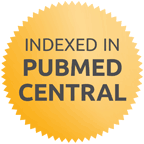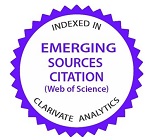Abstract
Despite the advancement in secondary cardiovascular prevention strategies for post-acute coronary syndrome (ACS) patients, the development of new drugs addressing dyslipidemia and the personalization of dual antiplatelet therapies (DAPT), these patients continue to suffer a significant incidence of recurrent ischemic events. Therefore, novel targets that can be tackled to reduce cardiovascular risk are needed to improve the outcome of this very high-risk population. The role of chronic inflammation and inflammasome in the development and progression of atherosclerosis has been broadly investigated in patients with established coronary artery disease (CAD) and recent randomized trials have highlighted the possibility to manage these targets with specific drugs such as colchicine and monocolonal antibodies with a significant improvement of cardiovascular outcomes in post-ACS patients. Lipoprotein(a) [Lp(a)] is the most promising non-traditional risk factor and has shown to predict worse outcome in post-ACS patients. Lowering Lp(a) through PCSK9 inhibitors and specific targeted therapies has shown positive results in reducing adverse cardiovascular events in patients with established CAD. The effect of microbiome and its alteration in gut dysbiosis seems to actively participate in residual cardiovascular risk of CAD patients; however, the risk-modifying effect of targeted-microbiome therapies hasn’t been yet investigated in large population-based studies. Long-term outcome of post-ACS patients is a complex puzzle of multiple factors. In this minireview, we summarize the emerging risk factors that may interplay in the residual risk of post-ACS patients and their possible prognostic and therapeutic implications.
Recommended Citation
Cancro, Francesco Paolo; Bellino, Michele; Silverio, Angelo; Maio, Marco Di; Esposito, Luca; Palumbo, Rossana; Manna, Martina La; Formisano, Ciro; Ferruzzi, Germano; Vecchione, Carmine; and Galasso, Gennaro
(2024)
"Novel targets and strategies addressing residual cardiovascular risk in post-acute coronary syndromes patients,"
Translational Medicine @ UniSa: Vol. 26
:
Iss.
2
, Article 1.
Available at:
https://doi.org/10.37825/2239-9747.1058
Creative Commons License

This work is licensed under a Creative Commons Attribution-Noncommercial-No Derivative Works 4.0 License.
Included in
Health Communication Commons, Life Sciences Commons, Medicine and Health Sciences Commons




